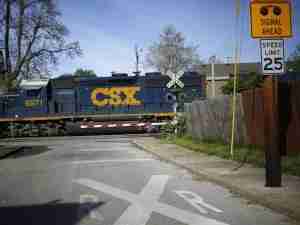US Pacific Northwest exports backlogged, delays could worsen
By: Reuters | Aug 11 2014 at 08:58 AM | Intermodal
U.S. grain shipments out of the largest terminal in the Pacific Northwest are facing major delays as grain inspectors remain off-site because of a labor dispute, and concerns are growing that the backlogs will get much worse when bumper harvests roll in.
United Grain Corp, which owns the terminal at the Port of Vancouver, entered August with nearly 20 million bushels of grain on the books to ship this month. That included 2.8 million rolled over from July as it struggled to meet commitments after state officials stopped inspecting grain on July 7.
“We have supply backing up into the supply chain just as the wheat harvest peaks and creates choke points for everybody,” said Pat McCormick, a spokesman for the Pacific Northwest Grain Handlers Association, which includes United Grain.
“And with the harvest coming on, there isn’t a whole lot of capacity at other terminals,” he added.
The Port of Vancouver in Washington state is the largest of nine grain export facilities on the Pacific Northwest and moves nearly 20 percent of the region’s grain exports and more than 40 percent of the grain destined for Japan. About a quarter of all U.S. grain exports are shipped out of the Paciifc Northwest, second only to the Gulf.
United Grain, a unit of Japanese trading house Mitsui , essentially stopped normal operations last month when the state government withdrew police protection for inspectors to cross the International Longshore and Warehouse Union (ILWU) picket line.
United Grain and the union have been in an 18-month standoff after the two sides hit an impasse in contract negotiations.
The company has asked the federal government to supply inspectors, but the USDA has declined so far. In a letter to United Grain on Thursday, the USDA said the situation “does not ensure that FGIS inspectors will have safe access to the facility.”
United Grain and the union will next meet on Sunday and Monday.
The company met most of its export commitments last month by securing inspection waivers from customers and the USDA, as well as shifting scheduled vessels to other export terminals, shipping more than 9 million bushels overseas.
But concerns are mounting that the situation could worsen as record-large corn and soybean harvests arrive beginning in a few weeks.
“Last year, when we got to September/October/November, we saw more corn and especially soybeans coming into the Portland area to be exported to China. If you take out United Grain - that’s less capacity available to export wheat,” said Pearson Burke, a grain merchant for AgVentures NW in Odessa, Washington.
“We’re nervous as to what’s going to happen down the road,” Burke added.







